Making a Better World | Innovation
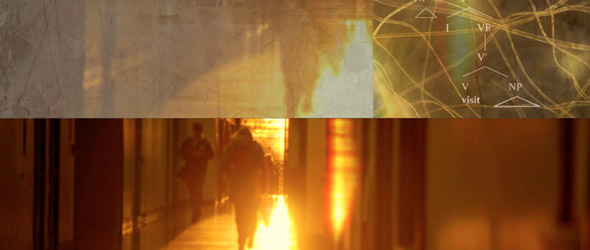
MIT aims to provide the infrastructure and economic opportunity to support a world population of nearly 10 billion by 2050. MIT's social science, arts, and humanities fields contribute to this goal in three primary ways:
Research to Policy
MIT SHASS has a vast research portfolio in Social Innovation — work on political, cultural, historical, and economic factors that inform and guide better public policy across a wide spectrum of issues. MIT's renowned "research to policy" work is the companion of the "lab to impact" work of the STEM fields.
Empowering every MIT student
MIT SHASS faculty also teach every MIT undergraduate. By empowering MIT students with political, economic, cultural, and historical perspectives — as well as skills in critical thinking, languages, and communication — the School increases the capacity of every MIT graduate to serve the world well, innovating across the broad range of humanity's challenges.
Works for the world
In addition, the MIT SHASS faculty regularly generate Works that enter the marketplace, including the marketplace of ideas; these products include books, musical compositions and recordings, operas, concerts and theater performances, and a range of innovative digital products, including: music21, Annotation Studio, Visualizing Cultures, Artbot, Global Shakespeare, and the many games developed in the MIT SHASS Game Lab.
Selected Stories about Innovation
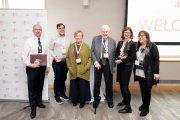
Shining a spotlight on local science journalism
The Knight Science Journalism program’s Victor K. McElheny Award honors outstanding local and regional journalists’ reporting on science, public health, tech, and the environment.
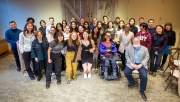
Burchard Scholars gather to network, connect, and learn
The Burchard Scholars dinner series helps create conversations between academic disciplines.
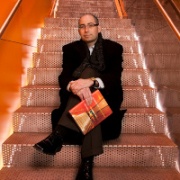
ETHICS, COMPUTING, AND AI
A responsible path to computing advances
Professor David Kaiser and Julie Shah lead initiative to embed ethical and social responsibilities in MIT's computing and advanced tech education, research, and community engagements.
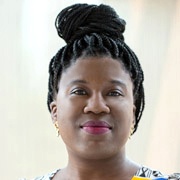
INNOVATION
3Q with Sandy Alexandre: On the literary roots of many technological innovations
In 2019, Alexandre was awarded a prestigious Bose Research Grant, which supports her study of the under-explored phenomenon of ideas that first appear in speculative fiction becoming technological and social reality.
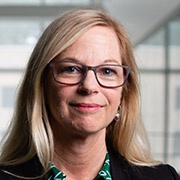
Lisa Parks contemplates the eyes in the sky
Media scholar examines the way satellites, drones, and other aerial technologies change society
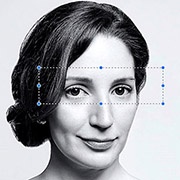
INSIDE THE CLASSROOM
Hacking virtual reality | CMS.339
Contributing to a culture of pioneers, MIT students in "Virtual Reality and Immersive Media Production" explore the technical, philosophical, and artful dimensions of VR.
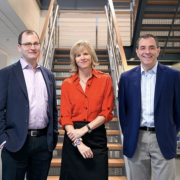
MIT launches Task Force on the Work of the Future
Institute-wide effort will study the evolution of jobs in an age of technological advancement. Members represent fields from engineering and cognitive science to economics, management, political science, anthropology, education innovation, and the history of technology.
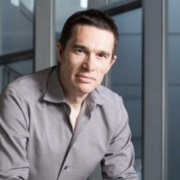
INNOVATION
Innovation, meet organization
Economist John Van Reenen studies the creation and use of technology, from the R&D lab to the workplace.
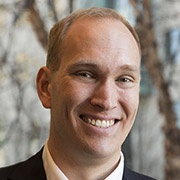
Robin Wolfe Scheffler awarded 2018 Levitan Prize in the Humanities
Scheffler, the Leo Marx Career Development Professor in the History and Culture of Science and Technology, has been awarded the prestigious award that includes a $30,000 grant that will support his research into the factors that influenced the development of Boston’s booming biotech industry.
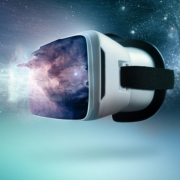
INNOVATION
Play Labs announces first class of VR/AR/playful startups and demo session
First accelerator program on the MIT campus will showcase 12 startups across a mix of gaming, virtual reality, esports, and augmented reality technologies.
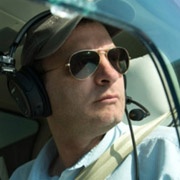
Q&A with historian/engineer David Mindell
On human-centered robotics and innovation
“The new frontier is learning how to design the relationships between people, robots, and infrastructure...The new success of robots will depend on how well they situate into human environments; as in chess, the strongest players are often the combinations of human and machine. I increasingly see that the three critical elements are people, robots, and infrastructure — all interdependent."
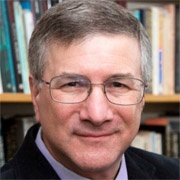
CORE | TEACHING AND LEARNING
3 Questions: Jeffrey Ravel on bringing data to cultural history
Centuries from now, will anyone remember the hit Broadway show “Hamilton?” Will they know how popular it was? As it happens, historians do know a great deal about Enlightenment-era French theater, and they continue to learn more — thanks in part to the Comédie Française Registers Project (CFRP), an ongoing effort led by Jeffrey Ravel, head of the MIT History faculty.
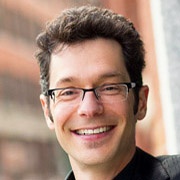
ARTS INNOVATION: MUSIC + TECH
Harmonix co-founder Eran Egozy returns to MIT as Professor of the Practice of Music Technology
"Music exercises the artistic part of your brain, which encourages creativity, and that creativity can be applied to engineering and science," says Egozy, founder of Harmonix, one of the pre-eminent game development studios. "But students should take classes in the humanities and arts simply because they are rich and wonderful subjects. And ultimately, the truly great things happen in the world when people pursue the work they love."
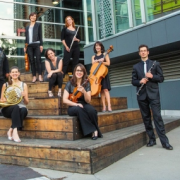
ARTS INNOVATION | PERFORMANCE + TECH
3Q: A World-Premiere Concert Where the Audience Helps Play
MIT’s Eran Egozy discusses “12,” a chamber music debut with smartphone-driven percussion.
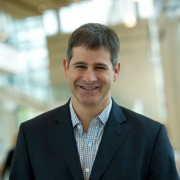
RESEARCH TO POLICY: SOCIAL INNOVATION
Q&A: Chappell Lawson on the MIT International Policy Lab
IPL faculty lead describes the project goals, and invites proposals. IPL will award up to $10K to faculty and PI research staff who wish to convey their research to policymakers.
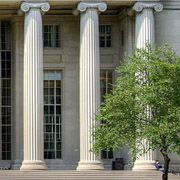
INNOVATION + CORE
MIT named No. 1 university worldwide for social sciences
The Times Higher Education World University Rankings has named MIT the No. 1 university worldwide for social sciences for 2015, 2016, 2018, 2020, and most recently 2021. The MIT SHASS subjects covered in the ranking include political science, comparative media studies, and anthropology, among others.
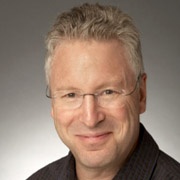
BASIC RESEARCH: HISTORY OF SCIENCE
Tom Levenson discusses his new book, The Hunt for Vulcan
Tom Levenson, Professor of Science Writing and director of MIT’s Graduate Program in Science Writing will give a presentation about his new book The Hunt for Vulcan — the planet that was repeatedly discovered (although it did not exist).
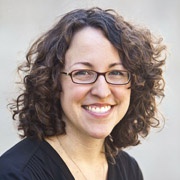
RESEARCH TO POLICY: INNOVATION ECONOMIST
Williams wins MacArthur "genius grant"
Economist who studies the economics of innovation wins $625,000 prize. Williams researches the causes and consequences of technological change in health care markets. Her broad goal is to shed light on the economics of innovation in a context — health care —that has important consequences for human health and welfare, one which is critical to national fiscal policy.
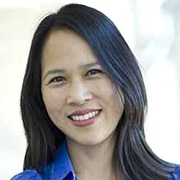
RESEARCH TO POLICY: GOVERNANCE
Lily Tsai receives 2015 Levitan Prize for research to empower citizens
Founder of MIT Governance Lab creates immersive opportunities for MIT students to research new forms of civic engagement around the world.
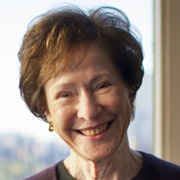
RESEARCH TO POLICY: INNOVATION IN MANUFACTURING
MIT report identifies keys to new American innovation
From “Main Street” firms to multinationals, improvements possible in funding of research, collaboration among manufacturers.

INNOVATION: ARTS ENTREPRENEURSHIP
Artbot engineers the discovery of Art
Is it possible to engineer the discovery of art? In 2013, two SHASS graduate students set out to answer that question, and today, thanks to their work as research assistants in CMS/W, there’s an app for that!
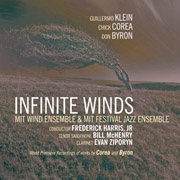
ARTS INNOVATION
MIT Music recording Infinite Winds released on major jazz label
For the first time ever, a collection of recordings by two outstanding MIT student groups — the MIT Wind Ensemble (MITWE) and the MIT Festival Jazz Ensemble (FJE) — has been released by major jazz label. The CD, Infinite Winds, features works by noted composers Guillermo Klein, Chick Corea, and Don Byron, as well as performances by renowned soloists Bill McHenry (tenor saxophone) and Evan Ziporyn (clarinet).
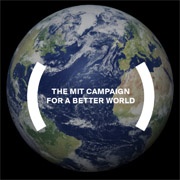
The MIT Campaign for a Better World
Announcing the new comprehensive campaign, MIT President L. Rafael Reif said, "Humanity faces urgent challenges — challenges whose solutions depend on marrying advanced technical and scientific capabilities with a deep understanding of the world's political, cultural, and economic complexities."
Discover the role of MIT's Humanities, Arts, and Social Sciences fields in solving the economic, cultural, and political dimensions of global issues, and in problem-solving in collaboration with our STEM colleagues.

SOCIO-TECHNICAL COLLABORATION
MIT SHASS at SOLVE
An October 2015 conference on the MIT campus marked the launch of SOLVE — an MIT project dedicated to generating ongoing thinking, research, and collaboration to solve the world's toughest problems. Meet MIT SHASS participants in some of the initial events.
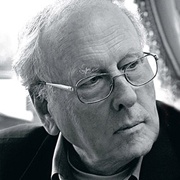
SOURCES OF INNOVATION
Historian Loren Graham on factors that propel innovators through challenges
Innovators particularly need different frames of mind in crisis moments, when one doesn't know how to go forward. Historian of Science and Technology Loren Graham discovers that these frames of mind can often be characterized by philosophical, moral, and ethical concerns.
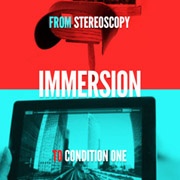
INNOVATION
The Open Documentary Lab puts MIT in the vanguard of new media for storytelling
Internet, cellphone cameras, big data, interactive games, and other technologies have created an explosion of new methods of storytelling that is transforming the media landscape. The Open Documentary Lab explores the challenges and opportunities these changes present for documentarians today.
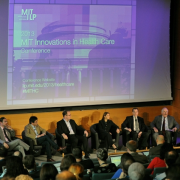
INNOVATION + HEALTH
New medical operations
At MIT’s “Innovations in Health Care” conference, industry experts discuss how to maintain quality while reining in costs.
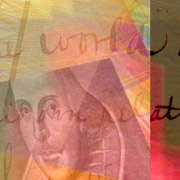
INNOVATION + EDUCATION: DIGITAL HUMANITIES
Gallery of Digital Humanities at MIT
The work going on in digital humanities and new media is one expression of the innovation that characterizes the Humanities more broadly. Using computational tools and methods, MIT humanities scholars are opening new lines of research and discovery, revitalizing the study of objects from the past, and asking questions never before possible.
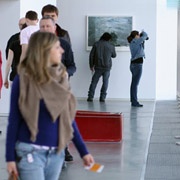
INNOVATION + EDUCATION: DIGITAL HUMANITIES
Class on digital humanities premieres with tech-savvy approach
First offered in the Spring 2013 term, and taught by Professor James Paradis and Principal Research Associate Kurt Fendt, both of Comparative Media Studies/Writing, "Digital Humanities: Topics, Techniques, and Technologies" (CMS.633), gave MIT students the chance to pair technical know-how with real-world humanities projects — such as designing innovations for the Institute of Contemporary Art Boston (ICA), and the Isabella Stewart Gardner Museum.
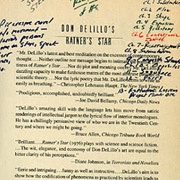
INNOVATION: EDUCATIONAL + ARTS TOOLS
"Annotation Studio" translates an ancient literary practice into the digital age
Annotation Studio, a digital humanities project developed by HyperStudio, promises to improve upon traditional techniques for entering marginalia and side notes in books — enabling readers not only to annotate texts across media, but also to share comments with others and to enhance them with links, images, video, and audio.
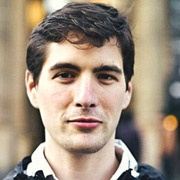
INNOVATION + EDUCATION: HUMANITIES MOOCS
Wi-Phi online video platform presents "philosophy's greatest hits"
A little philosophy could go a long way toward making the world a better place, says Damien Rochford, Ph.D. ’13, who has co-launched the Wi-Phi, an online, interactive philosophy website. The site presents more than a dozen short entertaining video animations to accompany talks by top scholars on such timeless questions as whether humans have free will, whether god exists, and what is it for a sentence to be true. The goal is for people to learn how to do philosophy, rather than simply learning what philosophers have thought, so the site focuses on developing critical thinking skills.
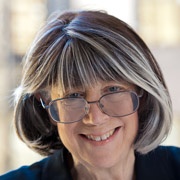
RESEARCH TO POLICY: INNOVATION
Silbey honored for lab safety research
Susan Silbey has received the 2012 Scott Award from ASA, a $25K Seed Grant from UCLA, and a grant from the MIT Simons Center for the Social Brain.
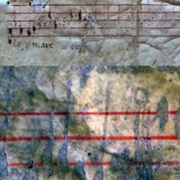
INNOVATION/RESEARCH: MUSIC21 TOOLS
Cuthbert receives $500K Digging into Data grant for innovative musicology tools
Associate Professor of Music Michael Cuthbert, together with an international team of researchers, has been awarded a $500K grant from the Digging into Data consortium (including $175K from the National Endowment for the Humanities). The grant supports his for work using computational techniques to study changes in Western musical style.

RESEARCH
SHASS stories on MIT News
The MIT News stories about SHASS research, awards, and creative works are primarily written by Peter Dizikes, Institute Writer for MIT News. The collected publications on this webpage also include some selected stories, which appear on MIT News, written by the SHASS academic units and by the SHASS Communications group in the Office of the Dean.
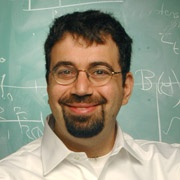
RESEARCH TO POLICY: ECONOMIC STABILITY
MIT economist Daron Acemoglu on inequality and the financial crash
This excellent podcast interview with Daron Acemoglu, Charles P. Kindleberger Professor of Economics, examines the role of income inequality in the financial crash.
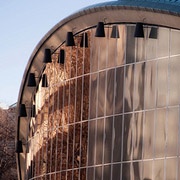
RESEARCH TO POLICY: ECONOMICS
Economics Symposium launches MIT's 150th celebration
This symposium, organized by the School's Department of Economics and the Sloan School of Management, celebrated the role of MIT’s faculty and students in advancing the fields of economics and finance, in putting the latest developments into practice, and in contributing to the design of public policy.
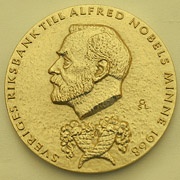
RESEARCH TO POLICY: ECONOMIC INNOVATION
Peter Diamond receives Nobel in Sweden
Institute Professor Peter Diamond PhD ’63 will collect the Nobel Prize in economics on Friday, Dec. 10, during a ceremony at the Stockholm Concert Hall in Sweden. Diamond, Dale T. Mortensen of Northwestern University and Christopher A. Pissarides of the London School of Economics won the prize for their analysis of “markets with search frictions,” which roughly equates to any setting in which buyers and sellers don’t easily find one another.
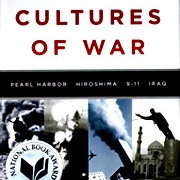
BASIC RESEARCH | HISTORY OF CONFLICT
Dower's Cultures of War is 2010 National Book Award finalist
Over recent decades, Pulitzer-winning historian John W. Dower has addressed the roots and consequences of war from multiple perspectives. Here he examines the cultures of war revealed by four powerful events—Pearl Harbor, Hiroshima, 9-11, and the invasion of Iraq in the name of a war on terror.
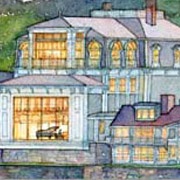
ARTS INNOVATION
David Deveau inaugurates new hall for Rockport Music
David Deveau is a pianist, Senior Lecturer in Music and Theater Arts, and since 1995, Artistic Director of the Rockport Chamber Music Festival (now Rockport Music). He has been a key force behind the acclaimed Shalin Liu Performance Center that opened in Rockport, Massachusetts in June 2010.